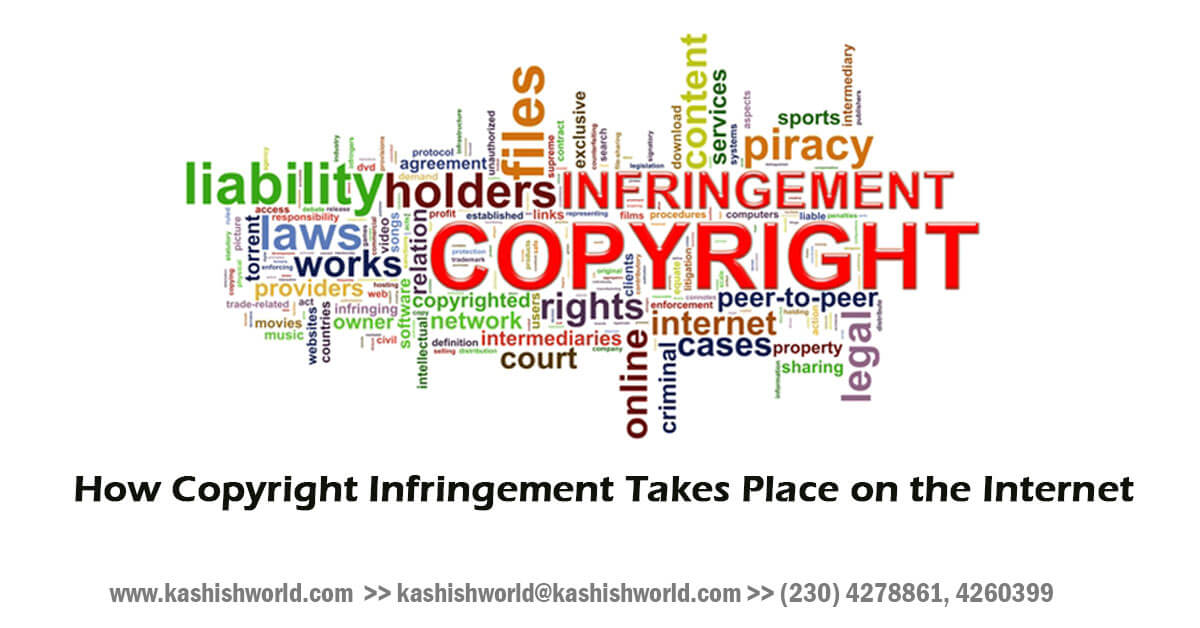
One can never deny the fact that the Internet is indeed one of man’s profound inventions and innovations of the millennium. The Internet refers to the global network of interconnected computers and networks, which is accessible at a negligible cost, and to almost every other person on the planet. While being the quickest source of information, the Internet, however, is both a boon and bane. Copyright owners across the globe often refer to the Internet as a curse more than a blessing. The reason behind the same lies in the fact that the Internet is the most predominant threat to their corresponding Intellectual Property Rights (IPRs) associated with a Copyright. Let’s first make ourselves familiar with why the Internet poses a threat to the unique creations of the Copyright holders by considering the points specified below:
- The Internet is accessible to any person and at any time without considerable impediments.
- It offers a platform for wide dispersion and distribution of information quickly within a few clicks.
- The cost associated with distribution is almost next to nil.
- The original creation and its replica or copies aren’t easy to distinguish.
The widespread usage of the Internet has given rise to various legal disputes and lawsuits concerning copyright infringement. As the infringement takes place in the digital networks, the courts and legal authorities often face difficulties while analyzing the issues and coming to a decision. Moreover, copyright infringement not only includes information but also extends to movies, photos, pictures, videos, audio-visuals, and other multimedia. Such material can easily be uploaded and downloaded as well, with no efforts required at all.
INFRINGEMENT OF COPYRIGHT ON THE INTERNET
Copyright Infringement on the Internet has nowadays become more prevalent than ever before. Due to its characteristics, the Internet is undoubtedly a threat to copyright owners. The peculiar feature of copyright infringement on the Internet is the point that it is arduous to determine whether a work is a copy of the original creation or not. On the other hand, making a distinction in the tangible medium is a completely hassle-free process. It is imperative to make a point of the fact that infringement may not always be intentional; it can be due to ignorance as well.
On the Internet, possible copyright infringement can take in several forms. Let us discuss each of these different avatars one by one.
- FRAMING – It refers to the process in which a website is allowed to include the contents from another independent website in its frame such that the framing website appears as the original one. In framing, every frame functions independently, due to which, the information downloaded in one frame stays inside it without overlapping with any other frame. Consequently, the users remain at the framing website and view its content by staying unaware of the fact that the content comes from another framed website.
- LINKING – Linking refers to the process of connecting the users from the original website to a linked website. The user is given access to the linked website on the original website itself with no need of typing the URL separately. For research purposes, linking proves to be beneficial to the users; however, it gives rise to several different legal issues.
- CACHING – Caching refers to the process in which a material is copied from its source to cache (space of temporary storage). The material shall be available to the users for a temporary period. Caching can be executed in several ways, for instance – copying a document displayed on the computer screen while accessing the web.
- PUBLIC DISPLAY OF RIGHT IN POSTING OR UPLOADING
When any creative work is published or uploaded on the Internet, there is no restriction on its viewing. Hence, when copyrighted material is posted without authorization, it becomes an issue of infringement. Although the courts and legal authorities haven’t given any straightforward formula to arrive at such a conclusion, they still have delivered mixed responses and decisions as per the facts of each case.
- ARCHIVING
It refers to the process of downloading and storing the content or material of one website and incorporating the same in another. Archiving – without taking the legal permission from the owner may amount to infringement.

